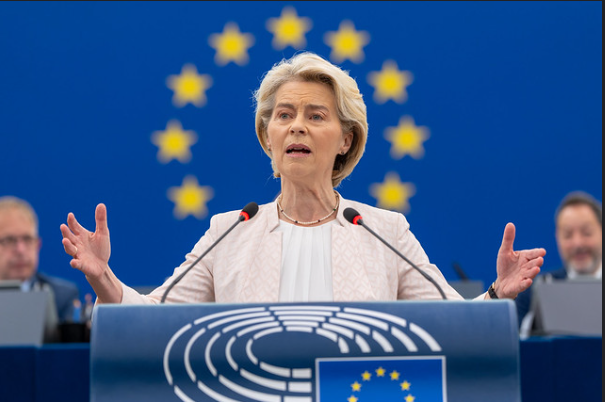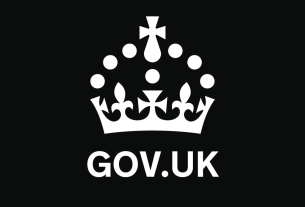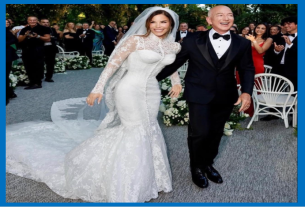In her first major speech since recovering from pneumonia, Ursula von der Leyen, President of the European Commission, emphasized the European Union’s pragmatic approach to its relationship with the new U.S. administration under President Donald Trump. Speaking at the World Economic Forum in Davos, Switzerland, von der Leyen highlighted the importance of safeguarding EU interests while engaging in constructive dialogue with the U.S.
Von der Leyen acknowledged that the EU’s relationship with the U.S. is crucial, noting that “a lot is at stake” for both sides. Despite concerns over Trump’s past threats—such as imposing tariffs on foreign goods and revising U.S. aid to Ukraine—the Commission President reiterated the EU’s commitment to defending its values and interests. She described the EU as “pragmatic” but firmly stated that Brussels would stand by its principles, using the necessary trade mechanisms to counteract any unjust measures from Washington.
The EU’s position is shaped by deep economic ties with the U.S., spanning investments, trade, and technology. Von der Leyen underscored that these interconnected economies should foster cooperation rather than confrontation. However, she did not shy away from addressing areas of tension, particularly in the context of the climate crisis. Without naming Trump directly, von der Leyen reaffirmed Europe’s commitment to the Paris Agreement, which the U.S. president had previously abandoned. “The Paris Agreement continues to be the best hope of all humanity,” she stated, reflecting the EU’s ongoing leadership in addressing global warming.
While von der Leyen focused on the importance of transatlantic cooperation, she also laid out the EU’s broader geopolitical strategy in a changing world order. She warned against the risks of escalating global competition, especially as major powers vie for access to key resources and technologies. This new era of “harsh geostrategic competition” poses challenges for Europe, which faces economic stagnation and demographic shifts. Von der Leyen highlighted the need for Europe to adapt, promising a focus on revitalizing the economy, boosting investment, and reducing barriers for businesses.
Additionally, von der Leyen reaffirmed the EU’s stance on supporting Ukraine, regardless of shifts in U.S. policy. “Whatever happens next, for us it’s important that Ukraine stays an independent country,” she said, reflecting the EU’s commitment to Ukraine’s sovereignty and territorial integrity.
Regarding China, von der Leyen touched on the evolving dynamics between the EU and Beijing, acknowledging the complexities of trade and human rights issues. While calling for continued vigilance against unfair practices, she also expressed a willingness to work with China where opportunities exist, particularly in expanding economic ties.
In her conclusion, von der Leyen called for Europe to be agile and adaptive in the face of new global realities. “Our values do not change,” she stated, but to protect those values, Europe must evolve its approach to global engagement. “This is the moment to engage beyond blocs and taboos,” she affirmed, signaling Europe’s readiness to navigate a complex and shifting international landscape.
References:
- European Commission: Official statements and policies from Ursula von der Leyen on EU-U.S. relations and global trade.
- World Economic Forum 2025: Summary of von der Leyen’s speech on global geopolitical shifts and EU strategy.
Picture on Flikr by EU Parliament CC BY 2.0



